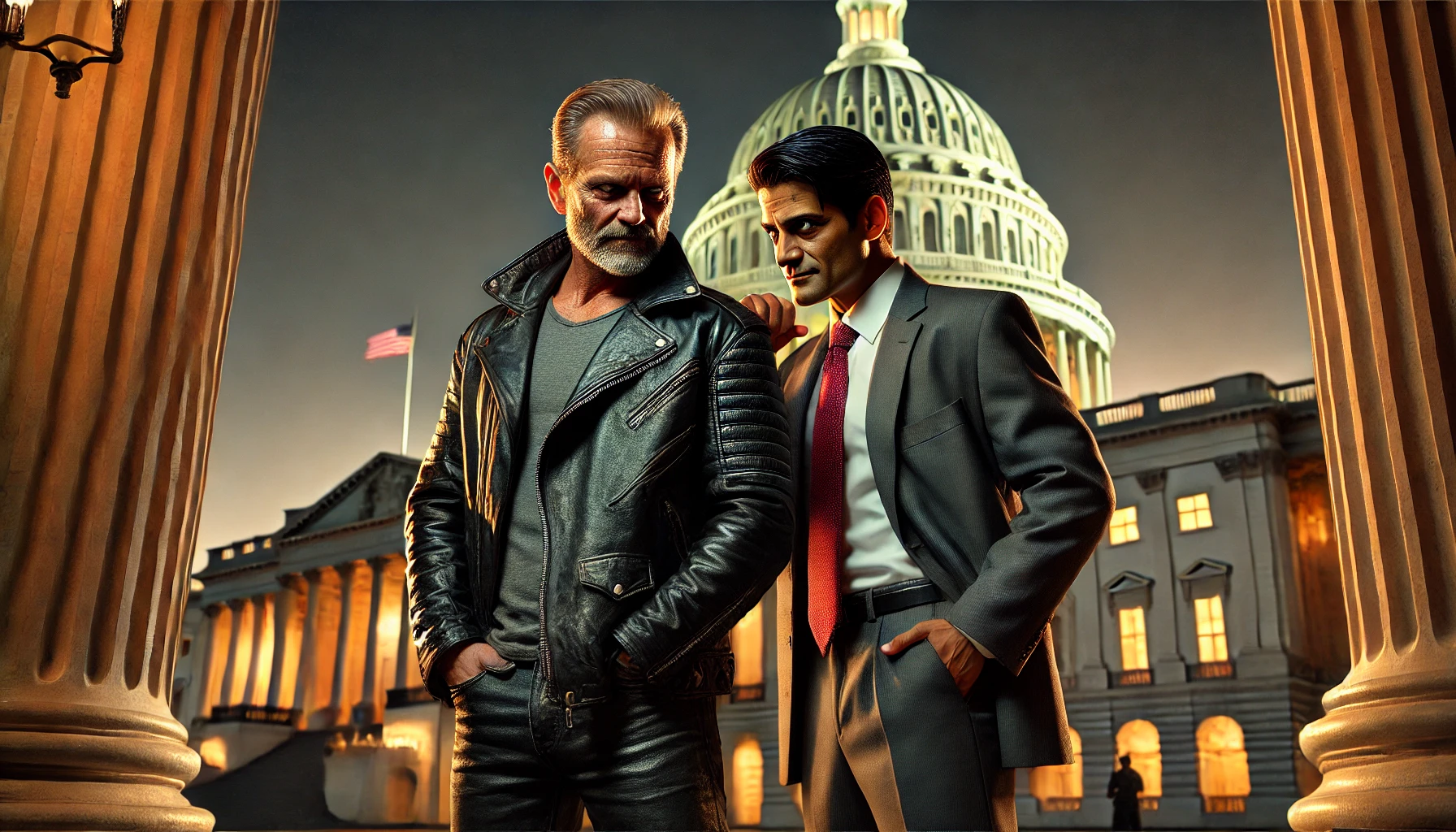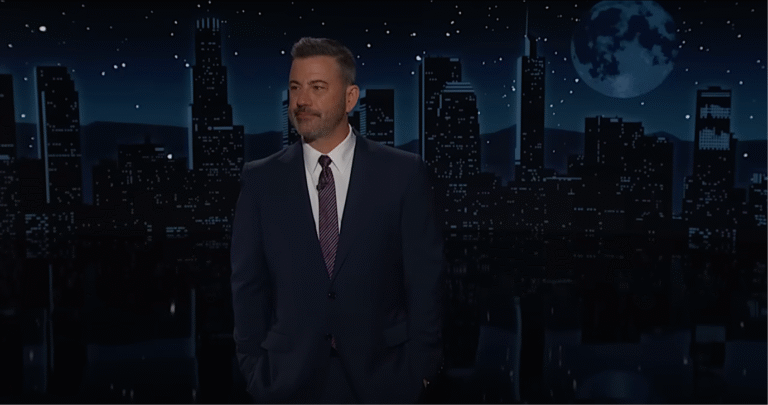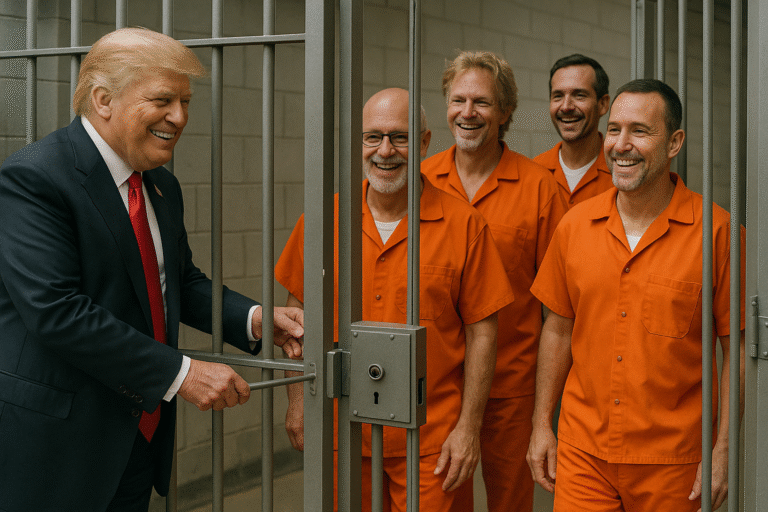Voters Said Inflation and Immigration; DOGE Heard Revolution
Let’s set the scene: The 2024 election results were barely dry when Elon Musk and Vivek Ramaswamy began sketching their master plan to, as they put it, “deliver the sweeping change voters demanded.” Except…did voters demand that? Sure, a 1.6% popular vote win for Trump suggests enthusiasm—but maybe more like the lukewarm kind you muster for reheated leftovers, not a revolution.
According to post-election polling, Americans were crystal clear: fix inflation (41%), deal with immigration (35%), and then, maybe, work on everything else. Nowhere in these priorities was “gut the federal government to skeleton crew levels” mentioned. Yet, Musk and Ramaswamy—self-styled efficiency gurus—are charging ahead like a couple of tech bros let loose on your grandma’s photo albums, insisting they know which memories to delete.
Meet the DOGE Commission: Cutting Costs or Just Cutting?
The crown jewel of Musk and Ramaswamy’s takeover fantasy is their Department of Government Efficiency—adorably acronymed as DOGE. A playful name for a very unplayful mission: slash $500 billion annually from Uncle Sam’s coffers by targeting “excessive regulations,” administrative “bloat,” and anything else that annoys libertarians.
Musk’s template for this grand experiment? His scorched-earth rebranding of Twitter into X: fire everyone, charge everyone, and hope the mess becomes the next big thing. Musk is clear about the toll, describing inevitable “temporary hardship.” Translation: layoffs, disrupted services, and a nation wondering why the TSA line is now 14 hours long. Ramaswamy, never outdone, ups the ante, calling for a 75% reduction in federal workers—a number that could turn Washington, D.C., into an unintentional ghost town.

Reality Check: Commissions Aren’t Magic Wands
Here’s the thing: sweeping government reforms require…Congress. And Congress is about as likely to agree on $500 billion in annual cuts as Americans are to agree on whether pineapple belongs on pizza. Past commissions promising utopia on a budget ended up delivering something closer to a shrug. Even Evercore, a respected financial analysis firm, estimates DOGE might scrape together “hundreds of billions” over a decade, not per year. Oops.
Let’s not forget the legal landmines. If Trump’s team tries to starve agencies of their budgets without Congressional approval, brace for a tsunami of lawsuits. Government efficiency may end up looking more like government paralysis, with the Supreme Court as the final arbiter of whether Musk and Ramaswamy are brilliant reformers or overzealous experimenters.

The Real Cost: Fewer Services, More Chaos
What does Musk’s efficiency dream mean for everyday Americans? Picture this: You call Social Security to resolve an issue—except no one answers because half the staff is gone. Your passport application takes 12 months instead of 6. National parks close early. Air traffic controllers? Let’s just say, pack snacks for your delay-riddled flights.
And it’s not just federal employees who’ll suffer. Small businesses near shuttered agencies—dry cleaners, diners, barbers—will also take a hit as laid-off workers tighten their belts. Musk optimistically suggests these folks will find private-sector jobs. Sure, maybe after a lengthy stint on unemployment and a few soul-crushing job fairs.
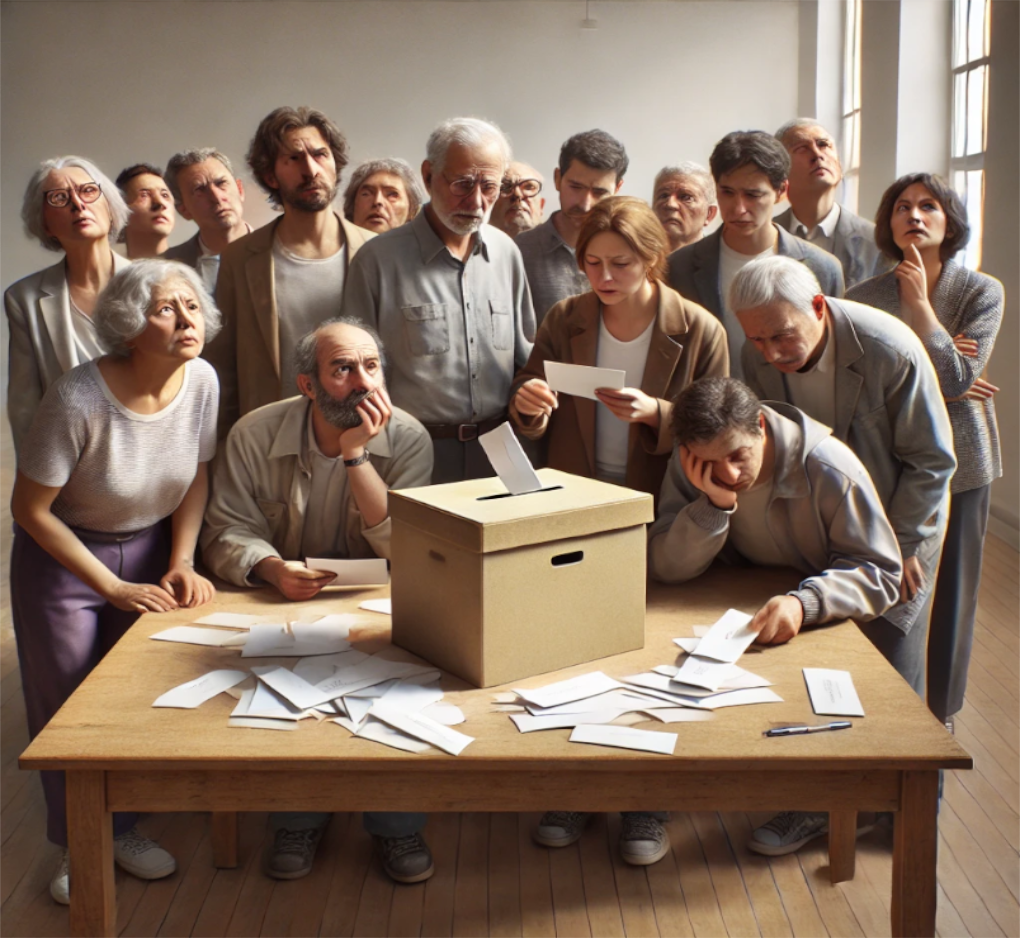
Did Voters Really Want This?
Vivek Ramaswamy seems convinced they did. “Revolution, not reform!” he insists, like an undergrad who just discovered Karl Marx but skipped the homework on economic fallout. But for millions of Americans, “revolution” sounds less like a bold new direction and more like a logistical nightmare.
Instead of grappling with inflation, immigration, or other real issues, we’re left with a government downsized to the point of dysfunction. Meanwhile, the only thing most Americans are asking for is a break on gas prices—not a bureaucratic blitzkrieg.

Musk’s Math: The Refund Check That Never Comes
And what’s the ultimate payoff? Musk’s vision, if executed flawlessly (spoiler: it won’t be), might theoretically save taxpayers enough to…buy an extra latte every month? Cutting government spending is no easy path to lower taxes when ballooning deficits are part of the equation. In the end, this grand efficiency experiment might just leave Americans poorer in services but richer in frustration.
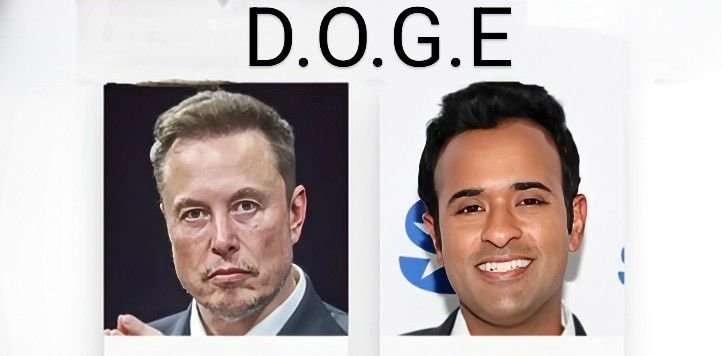
DOGE: Woof or Whimper?
As Musk and Ramaswamy plot their government overhaul, one question lingers: what problem are they actually solving? Voters didn’t ask for a revolution; they asked for relief. Instead, they’re getting a government overhaul cooked up by two billionaires whose combined public-sector experience is approximately nil.
DOGE may be a fun acronym, but for the millions of Americans who rely on federal services, it might just become the sound of government collapse: “Woof.”

